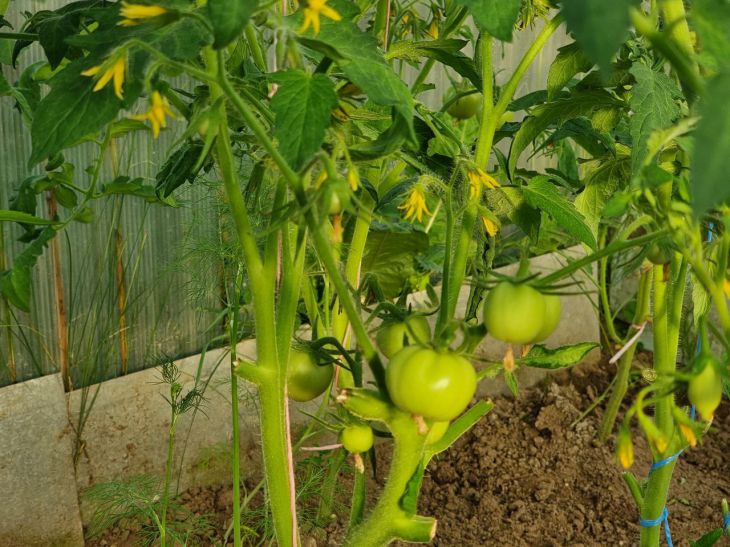You shouldn't assume that excess fertilizer is the only reason for tomatoes becoming fat.
Such behavior of plants can also be influenced by favorable weather conditions, says Anastasia Kovrizhnykh, an expert of the online publication BelNovosti, a scientist, agronomist, and landscape designer.
Instead of looking for someone to blame, we suggest that you familiarize yourself with the signs by which you can recognize fat tomatoes.
These are, first of all, excessively thick and “fat” stems, to which huge, dark green leaves are attached.
You shouldn't be happy with the appearance of the bushes, especially if they have very few flowers and ovaries.

If you have noticed that stepchildren and leaves have started to grow on the flower brush, we have sad news for you.
Remember: the brush should consist exclusively of flowers and fruits. There is no place for continuation of shoots here.
In addition, you should be wary if the shape of the flower cluster does not correspond to the variety - for example, when a regular flower cluster begins to branch out.
In this case, there is no point in counting on a bountiful tomato harvest.








